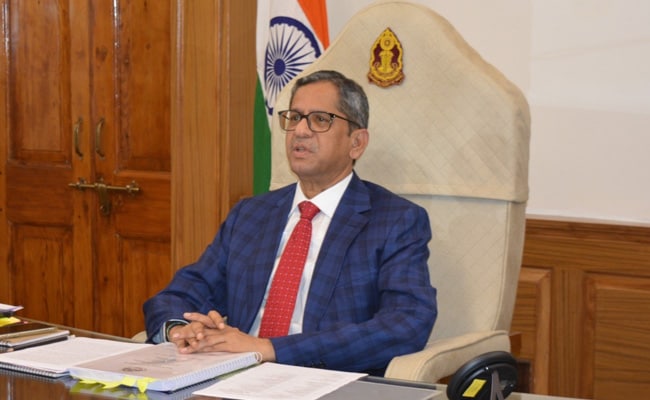
"Need Harmony Between Judiciary, Legislature, Executive": Chief Justice NV Ramana
NDTV
The Chief Justice pointed out that in an earlier speech he had mentioned about the need for Indianisation of the legal system.
Chief Justice of India NV Ramana today emphasised that there is a need for harmony between the three organs of the state - Judiciary, Legislature and Executive - in order to ensure proper justice delivery system.
"It is general understanding of the people that it is the court's responsibility to make laws. This notion has to be dispelled. This is where the role of other organs of the state, i.e. the Legislature and the Executive assumes great significance. The Legislature needs to revisit the laws and reform them to suit the needs of time and people. I emphasize, our laws must match with our practical realities. The executive has to match these efforts by way of simplifying the corresponding rules. Most importantly, the Executive and the Legislature should function in unison in realising the Constitutional aspirations. It is only then, that the Judiciary would not be compelled to step in as a law-maker and would only be left with the duty of applying and interpreting the same. At the end of the day, it is the harmonious functioning of the three Organs of the State that can remove the procedural barriers to justice," the Chief Justice said at the inauguration of the new building of Odisha State Legal Services Authority in Cuttack.
The Chief Justice also pointed out that in an earlier speech he had mentioned about the need for Indianisation of the legal system and he wanted to elaborate upon the same today.
He said, "Even after 74 years of independence, traditional and agrarian societies, which have been following customary ways of life, still feel hesitant to approach the courts. The practices, procedures, language and everything of our Courts feels alien to them. Between the complex language of the acts and the process of justice delivery, the common man seems to lose control over the fate of his grievance. Often in this trajectory, the justice-seeker feels like an outsider to the system .Although a harsh reality, often our legal system fails to take into consideration the social realities and implications. Sadly, our system is designed in such a way that by the time all the facts and law are churned in the court of law, much gets lost in the process. People might be bringing their problems to the courts, but what remains at the end of a day is yet another "case"."
